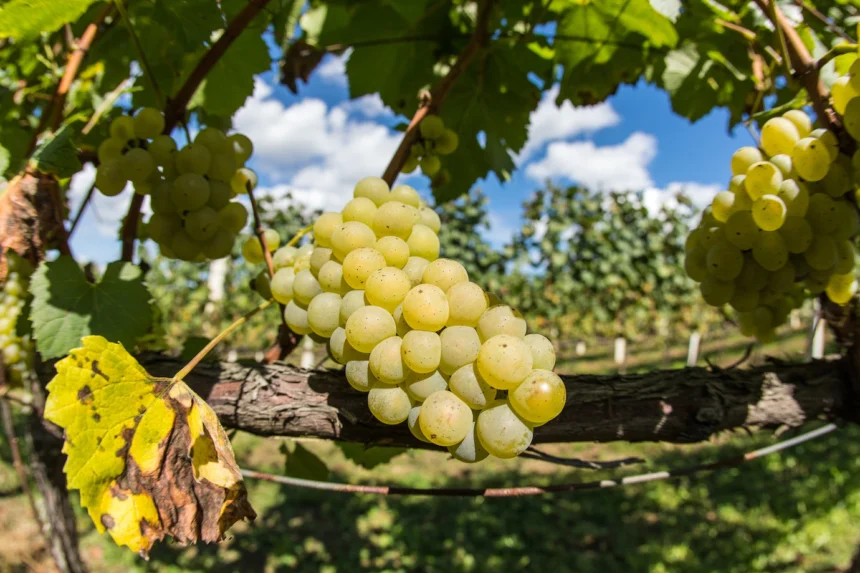South Africa has developed a world-class wine industry, and grape cultivation plays a crucial role in its success. The country’s diverse climate, fertile soils, and long winemaking history contribute to the exceptional quality of South African wines. Here is an overview of grape cultivation and South Africa’s wine industry:
- Climate and Geography: South Africa benefits from a Mediterranean climate, with hot summers and mild winters in the wine-producing regions. The diverse topography and varying altitudes create microclimates suitable for growing a wide range of grape varieties.
- Wine Regions: South Africa has several renowned wine regions, each with its unique characteristics. The major wine-producing areas include the Cape Winelands (Stellenbosch, Paarl, Franschhoek), Coastal Region (Constantia, Durbanville), Breede River Valley (Robertson, Worcester), Olifants River Valley, and the Klein Karoo.
- Grape Varieties: South Africa cultivates a vast array of grape varieties, both indigenous and international. Some of the most common white grape varieties include Chenin Blanc (locally known as “Steen”), Sauvignon Blanc, Chardonnay, and Sémillon. The popular red grape varieties include Cabernet Sauvignon, Shiraz (Syrah), Pinotage (a unique South African cross of Pinot Noir and Cinsault), Merlot, and Cabernet Franc.
- Sustainability and Biodiversity: South Africa’s wine industry has increasingly embraced sustainable practices, with many vineyards implementing environmentally friendly measures. The Cape Winelands region is recognized as a biodiversity hotspot, showcasing a rich variety of plant and animal life.
- Winemaking Traditions: South Africa has a long winemaking history dating back more than 350 years. The industry has experienced a renaissance in recent decades, combining traditional winemaking techniques with modern advancements in viticulture and enology. Many vineyards offer wine tours, tastings, and cellar experiences, allowing visitors to appreciate the winemaking process.
- International Recognition: South African wines have gained international acclaim, with local wineries receiving prestigious awards and accolades. The country’s winemakers continually strive for excellence, producing wines that are celebrated for their quality, complexity, and unique character.
- Wine Tourism: The South African wine industry attracts numerous tourists who visit the country’s picturesque vineyards and wineries. Wine tourism has become a significant economic driver, with visitors enjoying wine tastings, vineyard tours, and culinary experiences.
- Wine Industry Challenges: Despite its success, the South African wine industry faces challenges such as fluctuating weather patterns, pests, and diseases. Additionally, socio-economic factors, land reform initiatives, and global market competition present ongoing challenges for vineyard owners and winemakers.
South Africa’s world-class wine industry is a testament to the country’s exceptional grape cultivation practices. The combination of favorable climates, diverse grape varieties, sustainable viticulture, and a commitment to quality has positioned South African wines among the best in the world.
Join 'Farmers Mag' WhatsApp Channel
Get the latest Farming news and tips delivered straight to your WhatsApp
CLICK HERE TO JOIN






